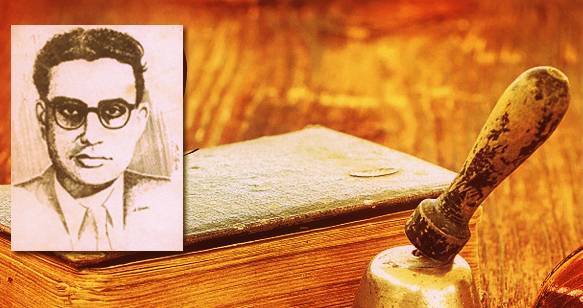The Marxist Insha was a ‘deewana’ in his own right. To quote Ibn-e-Insha,
“Deewano’n ki si na baat kare, aur kare deewana kia?”
Ibn-e-Insha is considered to be one of the best poets and writers of his generation. The leftist poet passed on the angst felt by the common people, but never in a dogmatical manner. The poet of ‘Insha Jee utho’ passed away after losing a battle with cancer 38 years ago. Leaving behind a legacy that earned a place in commoner’s hearts and all the literary minds.
With Rajasthani family background, Ibn-e-Insha moved to Karachi post partition and kept writing. Insha was a Urdu poet, humorist, travelogue writer and columnist. To this day, it feels like Insha Jee still awaits proper recognition from the young generation that has forgotten the message of Insha Jee that a life lived without purpose, is a life wasted.

When asked about Ibn-e-Insha, the literary maestro Anwar Maqsood said:
“Ibn-e-Insha was my hero. Writers learnt writing by reading his books. Nobody could put pen to paper with the humorous aesthetics that he only, possessed. Today’s generation should leave the internet browsing and read Ibn-e-Insha.” When asked if he prefers his poetry or prose, he answered “I love his prose more than his poetry. All of them”
Ibn-e-Insha had written several travelogues, showcasing his sense of humor and his work has been appreciated by both Urdu writers and critics. He also translated a collection of Chinese poems into Urdu in 1960.
He was associated with various governmental services including Radio Pakistan, the Ministry of Culture and the National Book Centre of Pakistan.He also served the UN for some time and this enabled him to visit many places, all of which served to inspire the travelogues he would then pen. Some of the places he visited include Japan, Philippines, China, Hong Kong, Thailand, Indonesia, Malaysia, India, Afghanistan, Iran, Turkey, France, UK and United States.

The spiritualistic playwright, Banu Qudsia said:
“Nobody can write or speak like Ibn-e-Insha. There is a gaping hole in our literary world without him. He wrote from his heart, which made him unique”
His celebrated ghazal is known for its musical curse, “Insha Jee utho” has a mysterious history behind it, with Amanat Ali Khan and his son, Asad Amanat Ali Khan, passing away after singing the poem that apparently, was also considered to be ‘manhoos’ by Ibn-e-Insha himself.
It is believed that while, his last days in London he wrote in one of his letters, ‘Yeh manhoos ghazal kitno ki jaan ley gi …?’ (How many more lives will this cursed poem take?)
Yousaf Salahuddin, philanthropist and cultural icon said:
“Ibn-e-Insha is a literary genius. Our generation has read Ibn-e-Insha by heart, it is for the young generation to benefit from his writings. Personally, I love his ‘ghazals’ more. I remember I met him once, he obviously was a great man.”
The brilliance of Ibn-e-Insha is absolute. From his writings, it is evident that Insha Jee was in love with the wit concealed in ‘seriousness’ and wailed over the practice of living, a meaningless life.






